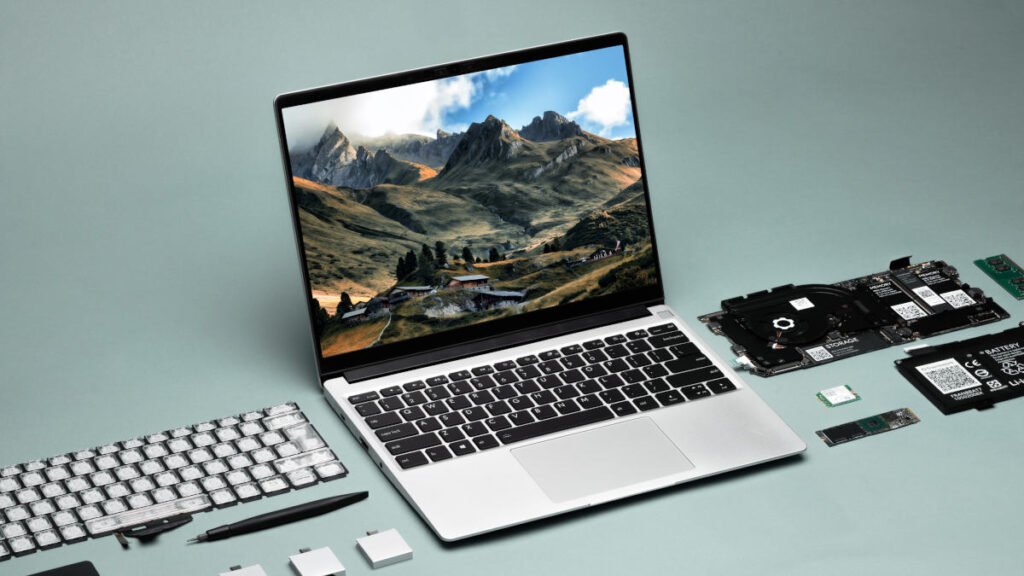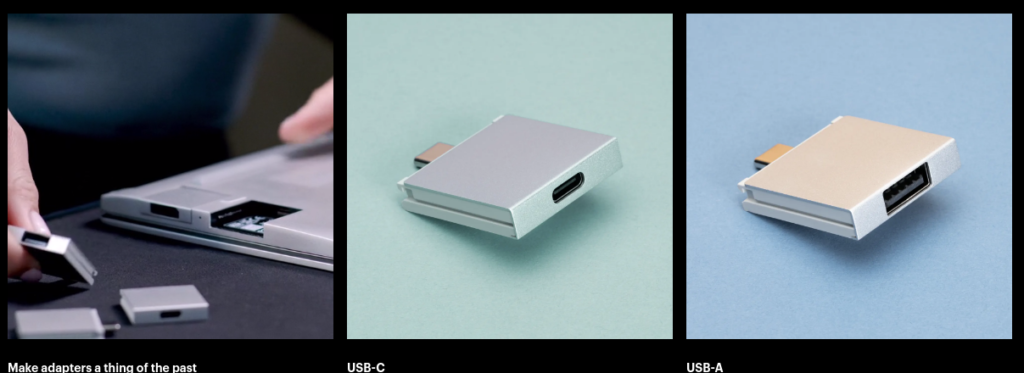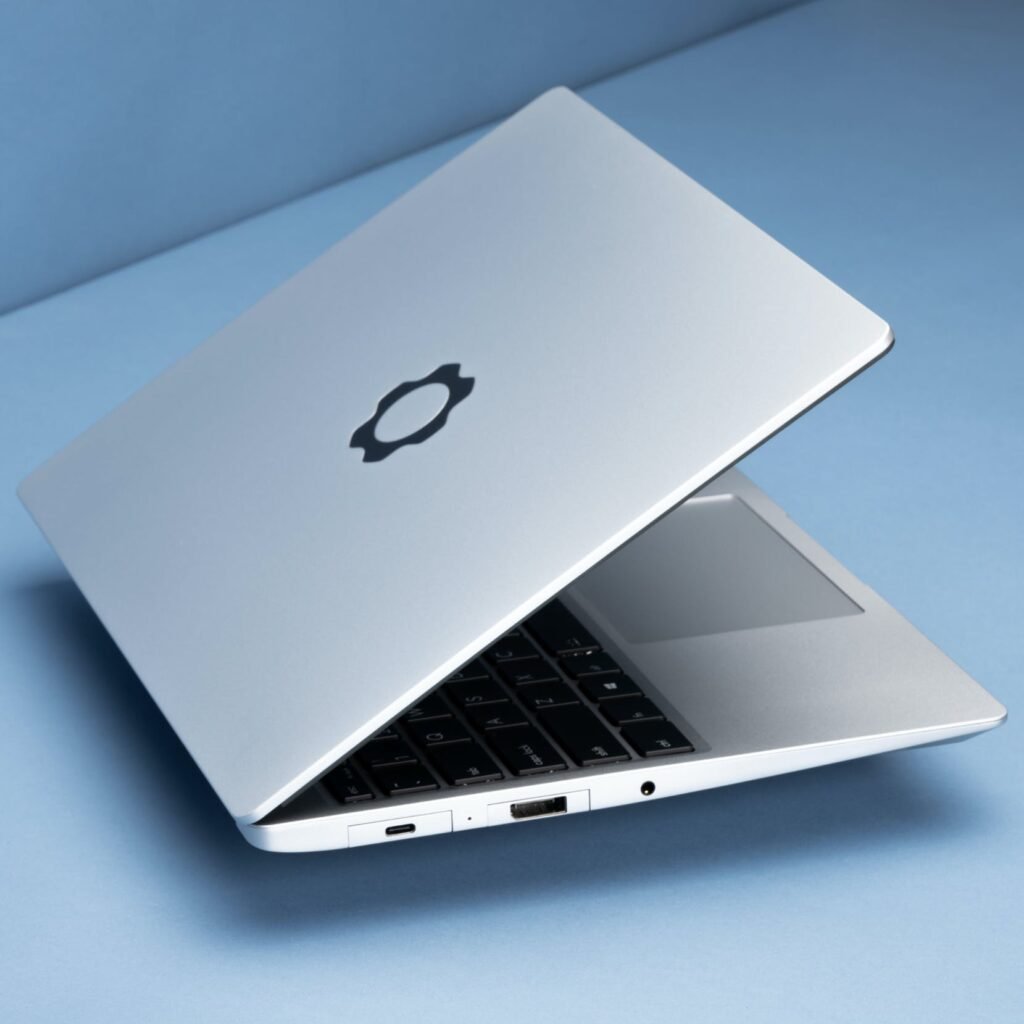Think about this. What if, you buy a laptop today and can simply swap and upgrade hardware components when needed and use that device for decades. Sound interesting isn’t it? Introducing Framework Laptop.

The startup company called Framework announced a modular notebook device ‘Framework Laptop’. The company boasts that the Laptop is super-modular, repairable with very easy DIY steps, and designed to run for decades by replacing/upgrading parts. It is not a new concept of modularity in the consumer electronic market. There were many early attempts to design a device that can be modular, easy to repair, and completely upgradable. But the difficulty is to make a mark on the consumer mindset.
Today, high-end Laptops tend to gets slower after approx 5-years due to physical wear-and-tear or software upgrades that require more memory, CPU power. And all those devices are built in a way that you just can’t just easily swap the motherboard for an upgrade, for example. It is true that swapping storage, memory is easy in most laptops today. But upgrading Motherboard, entire keypad, display panels are not a feature that comes with ease. Because complex components tend to be hard-wired in the PCB which can’t be removed for the upgrade.
Table of Contents
Framework Laptop
Looking at this very problem, Framework brings this concept device where you can easily swap the motherboard, display units, keyboard, and other accessories without worrying too much. And your device can run for decades. You pay only for the upgraded components.
This concept device also has a different take on the ports. The common I/O ports such as USB, HDMI keeps on upgrading with their newer and faster specifications. So, Framework brings small modular port blocks which you can just remove and plug-in separately whenever you want and forget about too many wires and adapters. How cool is that?
Take a look at the pictures below from their official website.

Specification
A quick rundown of the specification of the device.
- Weight: 1.3 kg
- Screen: 13.5-inch screen (3:2)
- CPU: 11th Gen Intel Core Processor
- Memory: Upgradable up to 64GB DRAM
- Storage: Upgradable up to 4TB SSD
- Webcam: 1080p 60fps webcam with hardware off switch
- Port: Default USB C port with expansion modules available for USB-A, HDMI, Display Port, MicroSD, and more in development
- Modular keypad with color options for upgrades

Operating System
The Linux Kernel supports all new hardware and constantly being updated. 11th GEN Intel CPU supports already started landing and included from LTS Linux Kernel 5.10. Hence it is fairly to assume that it would run vanilla Debian, Ubuntu just fine.
And Windows 10 definitely would run just okay as it is dominating the desktop operating system market.
Use Cases
In my opinion, this device is ideal for students, schools, or those who travel frequently. You do not need to carry many wires or bulky devices. You only carry the blocks for upgrades. Also upgrading this laptop can be cheap for students, teachers who want basic activities to be done sustainably.
Large enterprises also can see a viable option in this. Instead of buying thousands of Laptops for their employees, they can just buy the upgrade modules and replace them when needed. This in turn makes them more cost-effective by saving money on new hardware, recycle policy, warranty contract with OEMs.
Price and Buying Options
The laptop is not yet available for purchase as of writing this post as the company is preparing for the launch. You can register for notification on their official website below to get information about pre-orders. It is expected to start shipping in Summer 2021.
There is no information about the price range at the moment. But I don’t think it would a cheap device.
Closing Notes
It is difficult to make a mark on the Laptop space if you are a new player by beating established players like Lenovo, Dell, etc. But that’s where innovation matters. Hopefully, this becomes a hit so that many average users can save money by not buying new laptops every five years due to the strategic slowness created by the OEM and Windows (mostly). On the other hand, if you create a modular Laptop like this, essentially you are not going to sell millions of devices because of its upgradability. So, the business revenue model in this device might be selling more modular components only for a wide range of use cases.
Image credits: Framework